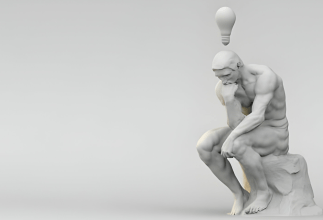This post has been written based on Jordan Peterson’s YouTube speech: A woman is not a car
Cohabitation before marriage has become increasingly common in modern society, often seen as a practical step in determining compatibility before making a lifelong commitment. However, a closer examination of the available evidence suggests that living together before marriage may, in fact, increase the likelihood of divorce rather than reduce it. This post explores the reasons why cohabitation does not serve as an effective test for marriage, addressing the flaws in common arguments supporting it, the psychological and sociological implications, and the role of commitment and faith in a lasting relationship.
1: Flaws in the “Test Drive” Metaphor
One of the most prevalent arguments in favor of cohabitation is the idea that one should not commit to marriage without first “testing” the relationship, much like one would test-drive a car before purchasing it. However, this analogy is fundamentally flawed. People are not objects, and relationships cannot be evaluated in the same transactional manner as consumer goods. A relationship is a dynamic, evolving connection between two individuals, shaped by commitment and shared experiences rather than a simple evaluation of compatibility. The assumption that cohabitation allows individuals to assess their partners before committing ignores the deeper transformations that occur within marriage.
2: Statistical Evidence Against Cohabitation
Empirical research indicates that couples who live together before marriage are more likely to divorce than those who do not. This counterintuitive finding challenges the common belief that cohabitation strengthens relationships. One possible explanation is that individuals who choose to cohabit may already possess attitudes and behaviors that make them more prone to relationship instability. Alternatively, cohabitation itself may foster a mindset of impermanence, weakening the long-term commitment necessary for a successful marriage. The data suggest that cohabitation does not effectively prepare individuals for the challenges of marriage but may instead contribute to its breakdown.
3: The Psychological and Sociological Implications
Cohabitation introduces ambiguity into relationships, which can lead to dissatisfaction and emotional distress. Research suggests that women, in particular, are more likely to experience emotional suffering in cohabiting relationships, especially when they desire marriage but their partner does not. Men who resist marriage often justify their stance by claiming that marriage is merely a legal formality—a “piece of paper” that does not change their level of commitment. However, this reasoning dismisses the profound social, psychological, and spiritual significance of making a public, lifelong vow.
Furthermore, studies have linked early promiscuity and multiple sexual partners with higher divorce rates. A lack of sexual restraint before marriage can indicate a pattern of behavior that prioritizes personal gratification over long-term stability. In some cases, these behaviors correlate with antisocial tendencies, further reinforcing the argument that an unstable approach to relationships may contribute to marital failure.
4: Marriage as a Transformational Commitment
Marriage is more than a contractual agreement; it is a structure that fosters deep personal growth. Drawing from Carl Jung’s perspective, marriage can be seen as a crucible—a container that applies pressure and heat to individuals, transforming them into stronger, more refined versions of themselves. True commitment forces couples to confront their differences, overcome obstacles, and grow together in ways that cohabitation does not demand. When difficulties arise, married couples have stronger incentives to work through their problems rather than simply part ways. The permanence of marriage creates the pressure necessary for transformation, whereas cohabitation allows for an easy exit, preventing deep emotional investment and problem-solving.
5: The Role of Faith in Commitment
Marriage, at its core, requires faith—the willingness to step into the unknown without absolute certainty. Unlike cohabitation, which allows individuals to keep their options open, marriage is an act of trust in the relationship and in one’s partner. A couple cannot have all the evidence they need before deciding to marry, just as individuals cannot predict the future with certainty. However, the decision to commit fully and permanently fosters an environment where love can flourish and deepen over time. Without this commitment, relationships may lack the stability and security necessary for long-term success.
Conclusion
While cohabitation may seem like a practical step toward marriage, the evidence suggests that it is more likely to weaken relationships rather than strengthen them. The flawed logic behind the “test drive” analogy, the increased likelihood of divorce among cohabiting couples, and the emotional and psychological instability it creates all point to the conclusion that living together before marriage is not a wise choice. Marriage, with its deep commitment, transformative power, and foundation of faith, offers a far more stable and meaningful path toward a fulfilling lifelong partnership. Instead of viewing marriage as a mere formality, couples should recognize it as an essential structure that fosters growth, resilience, and lasting love.
Plus: Carl Jung’s Thoughts on Marriage
1- “The meeting of two personalities is like the contact of two chemical substances: if there is any reaction, both are transformed.”
Jung saw marriage as a crucible for personal growth, where both individuals undergo change.
2- “A man’s marriage is the statement of his psychology.”
This suggests that the way someone approaches marriage reflects their inner world and personal development.
3- “A good marriage is that in which each appoints the other guardian of his solitude.”
Jung emphasized the importance of individuality within a committed relationship, suggesting that partners should respect each other’s inner worlds.
4- “The supreme meaning of the human life is to be found in marriage. Marriage is a transformation, a re-birth in a higher state of consciousness.”
He believed marriage was not just a social contract but a deep psychological and even spiritual transformation.




